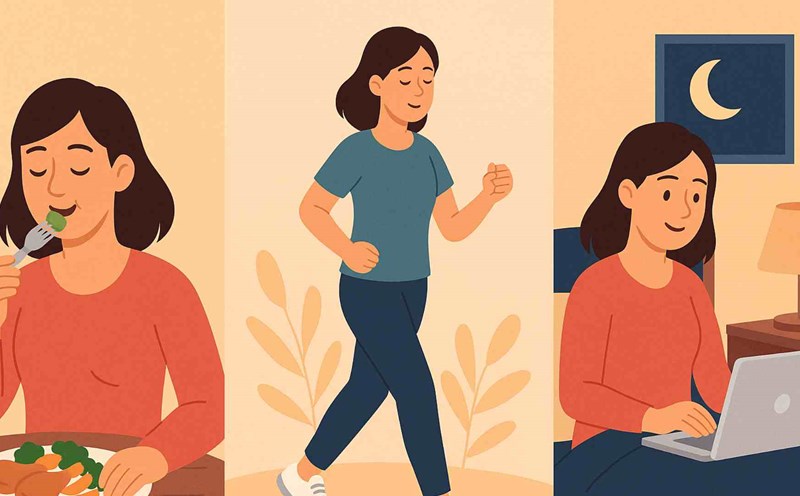Red apples have long been used by Eastern medicine for blood supply and sedation, often present in remedies for insomnia, fatigue, and anxiety.
Red apples are rich in biological compounds such as flavonoids, saponins, polysaccharides, natural triterpenoid acids and GABA, all of which are linked to central nervous system regulation.
Red apple extract has the ability to activate GABA-A receptors, similar to the effects of mild sedatives, helping to calm brain activity and support deep sleep.
According to research from the Department of Nutrition, Kyung Hee University (Korea, 2023), the group of volunteers with mild to moderate sleep disorders is divided into 3 groups:
Group 1 used 3 dried red apples per day.
Group 2 used 5 fruits a day.
Group 3 used fake medicine (no red apples).
After 4 weeks, the group used 5 red apples/day to improve the average deep sleep time of 28 minutes, reducing the time before bed by more than 35% compared to the control group. The group of 3 fruits/day is also effective but lower.
Conclusion from the study recommends that using 4-5 dried red apples/day (equivalent to 20-30g), used in the evening about 1-2 hours before bed, is a safe and beneficial level for sleep, especially in middle-aged people.
GABA ( gamma-aminobutyric acid): Red apples contain natural GABA, a neurosuppressant that helps calm the central nervous system, supporting a relaxation and sleep-able feeling.
Saponin: Found in red apple peel and meat, saponin has been shown to have a mild sedative and anxiety-reducing effect. Saponin in red apples helps increase the concentration of serotonin - an important neurotransmitter in regulating sleep.
Antioxidants: Flavonoids and vitamin C in red apples help reduce oxidative stress in the brain, which is the cause of poor sleep quality in the elderly.
How to use red apples for better sleep:
Steamed or steamed tea: Steep red apples with a few slices of ginger or steep hot water with longan and goji berries to increase relaxation.
Combined with a healthy diet: Avoid using too much sweetness or processed with sugar and syrup.
Do not take too much: Eating more than 6 fruits/day can cause bloating, slightly increasing blood sugar in people at risk of diabetes.










